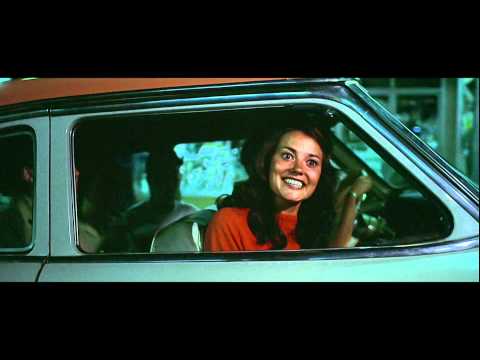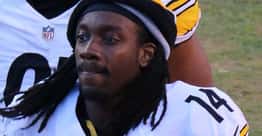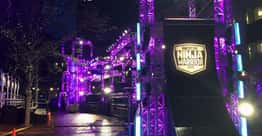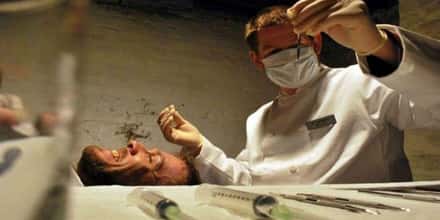The Best Movies Directed By George Lucas
Over 200 movie fans have come together to vote on this list of movies directed by George Lucas, a filmmaker who has left an indelible mark on the world of cinema. From epic space operas to coming-of-age tales set in small-town America, Lucas has proven himself to be a versatile director with an eye for spectacle and heart.
The films that made the cut range from beloved classics that have stood the test of time, to underrated gems that deserve more attention than they received upon release. Each title showcases a different facet of Lucas's creative vision, highlighting his strengths as both a visual storyteller and a masterful world-builder.
What makes these movies so special is not just their technical prowess or grandeur; it's also the way they connect with audiences on an emotional level. Whether exploring themes of friendship and loyalty in Star Wars or nostalgia and identity in American Graffiti, each film invites viewers into its own unique universe and asks them to invest themselves fully in its characters' journeys.
So whether you're a die-hard fan looking for new insights into your favorite films or simply someone curious about what all the fuss is about when it comes to George Lucas's work behind the camera, this list has something for everyone. So scroll down below and don't forget to vote up your favorites.
 1Mark Hamill, Harrison Ford, Carrie FisherIn Star Wars: Episode IV – A New Hope, a young farm boy, Luke Skywalker (Mark Hamill), finds himself thrust into the heart of an intergalactic conflict. Guided by the wise Obi-Wan Kenobi (Alec Guinness), he embarks on a daring mission to rescue Princess Leia (Carrie Fisher) from the clutches of the sinister Darth Vader (David Prowse). As space operas go, this one's a classic, brimming with enthralling battles, iconic characters, and a groundbreaking mix of practical effects and CGI. Winner of six Academy Awards, it's a pivotal entry in George Lucas's legendary Star Wars saga.
1Mark Hamill, Harrison Ford, Carrie FisherIn Star Wars: Episode IV – A New Hope, a young farm boy, Luke Skywalker (Mark Hamill), finds himself thrust into the heart of an intergalactic conflict. Guided by the wise Obi-Wan Kenobi (Alec Guinness), he embarks on a daring mission to rescue Princess Leia (Carrie Fisher) from the clutches of the sinister Darth Vader (David Prowse). As space operas go, this one's a classic, brimming with enthralling battles, iconic characters, and a groundbreaking mix of practical effects and CGI. Winner of six Academy Awards, it's a pivotal entry in George Lucas's legendary Star Wars saga.- Dig Deeper...The Most Hated Star Wars Villains
- And Deeper...Every Time Characters Repeat A Classic Line In A Star Wars Movie
- #46 of 772 onThe Most Rewatchable Movies
 2Ewan McGregor, Natalie Portman, Hayden ChristensenIn Star Wars Episode III: Revenge of the Sith, an epic space opera, a dark transformation unfolds. Anakin Skywalker (Hayden Christensen) is caught in a web of treachery and manipulation, pulling him away from his mentor Obi-Wan Kenobi (Ewan McGregor). The Galactic Republic crumbles under Chancellor Palpatine's (Ian McDiarmid) sinister designs. A tragic tale of friendship and loyalty, it marks the birth of Darth Vader and the rise of the Empire. This third installment in George Lucas's prequel trilogy won the People's Choice Award for Favorite Movie Drama in 2006.
2Ewan McGregor, Natalie Portman, Hayden ChristensenIn Star Wars Episode III: Revenge of the Sith, an epic space opera, a dark transformation unfolds. Anakin Skywalker (Hayden Christensen) is caught in a web of treachery and manipulation, pulling him away from his mentor Obi-Wan Kenobi (Ewan McGregor). The Galactic Republic crumbles under Chancellor Palpatine's (Ian McDiarmid) sinister designs. A tragic tale of friendship and loyalty, it marks the birth of Darth Vader and the rise of the Empire. This third installment in George Lucas's prequel trilogy won the People's Choice Award for Favorite Movie Drama in 2006.- #397 of 772 onThe Most Rewatchable Movies
- #5 of 11 onEvery 'Star Wars' Movie, Ranked Best To Worst
- #72 of 178 onThe 150+ Best Movies With Aliens
 3Richard Dreyfuss, Ron Howard, Paul Le MatImmerse yourself in the nostalgic whirlwind of American Graffiti, a 1973 comedy-drama directed by George Lucas. The spotlight shines on a group of freshly graduated high school friends, led by Steve Bolander (Ron Howard) and Curt Henderson (Richard Dreyfuss). As they navigate through a single night filled with drag racing, drive-ins and rock 'n' roll, they grapple with life-altering decisions about their futures. This film is an ode to the end of an era, offering a snapshot of American youth in the early 60s. Notably, it received five Academy Award nominations, including Best Picture.More American Graffiti
3Richard Dreyfuss, Ron Howard, Paul Le MatImmerse yourself in the nostalgic whirlwind of American Graffiti, a 1973 comedy-drama directed by George Lucas. The spotlight shines on a group of freshly graduated high school friends, led by Steve Bolander (Ron Howard) and Curt Henderson (Richard Dreyfuss). As they navigate through a single night filled with drag racing, drive-ins and rock 'n' roll, they grapple with life-altering decisions about their futures. This film is an ode to the end of an era, offering a snapshot of American youth in the early 60s. Notably, it received five Academy Award nominations, including Best Picture.More American Graffiti- #14 of 112 onThe 100+ Best Movies About High School
- #110 of 204 onMusical Movies With The Best Songs
- #426 of 772 onThe Most Rewatchable Movies
 4Ewan McGregor, Natalie Portman, Hayden ChristensenIn the epic space opera Star Wars Episode II: Attack of the Clones, a decade has passed since the events of The Phantom Menace. The galaxy is on the brink of civil war, with thousands of planetary systems threatening to secede from the Galactic Republic. Amidst this turmoil, Anakin Skywalker (Hayden Christensen), now a Jedi apprentice to Obi-Wan Kenobi (Ewan McGregor), struggles with his emotions when he reunites with Padmé Amidala (Natalie Portman). Meanwhile, a conspiracy unfolds, leading to the creation of a massive clone army. Directed by George Lucas, this sequel deepens the saga's mythology and sets the stage for an inevitable, large-scale conflict.
4Ewan McGregor, Natalie Portman, Hayden ChristensenIn the epic space opera Star Wars Episode II: Attack of the Clones, a decade has passed since the events of The Phantom Menace. The galaxy is on the brink of civil war, with thousands of planetary systems threatening to secede from the Galactic Republic. Amidst this turmoil, Anakin Skywalker (Hayden Christensen), now a Jedi apprentice to Obi-Wan Kenobi (Ewan McGregor), struggles with his emotions when he reunites with Padmé Amidala (Natalie Portman). Meanwhile, a conspiracy unfolds, leading to the creation of a massive clone army. Directed by George Lucas, this sequel deepens the saga's mythology and sets the stage for an inevitable, large-scale conflict.- #637 of 772 onThe Most Rewatchable Movies
- #9 of 11 onEvery 'Star Wars' Movie, Ranked Best To Worst
- #126 of 178 onThe 150+ Best Movies With Aliens
 5Robert Duvall, Donald Pleasence, Sid HaigTHX 1138 is a 1971 science fiction film directed by George Lucas in his feature directorial debut. The film was produced by Francis Ford Coppola and written by Lucas and Walter Murch. It stars Robert Duvall and Donald Pleasence and depicts a dystopian future in which the populace is controlled through android police officers and mandatory use of drugs that suppress emotion, including sexual desire. THX 1138 was developed from Lucas' student film Electronic Labyrinth: THX 1138 4EB, which he made in 1967 while attending the University of Southern California's film school.
5Robert Duvall, Donald Pleasence, Sid HaigTHX 1138 is a 1971 science fiction film directed by George Lucas in his feature directorial debut. The film was produced by Francis Ford Coppola and written by Lucas and Walter Murch. It stars Robert Duvall and Donald Pleasence and depicts a dystopian future in which the populace is controlled through android police officers and mandatory use of drugs that suppress emotion, including sexual desire. THX 1138 was developed from Lucas' student film Electronic Labyrinth: THX 1138 4EB, which he made in 1967 while attending the University of Southern California's film school. 6Liam Neeson, Ewan McGregor, Natalie PortmanIn Star Wars Episode I: The Phantom Menace, a young slave boy named Anakin Skywalker (Jake Lloyd), possessing extraordinary piloting skills, is discovered on the desert planet Tatooine by two Jedi Knights, Qui-Gon Jinn (Liam Neeson) and his apprentice Obi-Wan Kenobi (Ewan McGregor). Concurrently, the malevolent Sith Lord Darth Maul (Ray Park) poses a dark threat, while Queen Amidala of Naboo (Natalie Portman) fights to save her people. This science fiction epic, directed by George Lucas, marked the beginning of the legendary Star Wars prequel trilogy, introducing new characters and deepening the saga's lore. Notable for its groundbreaking special effects and John Williams's iconic score, it won Saturn Awards for Best Costumes and Best Special Effects.
6Liam Neeson, Ewan McGregor, Natalie PortmanIn Star Wars Episode I: The Phantom Menace, a young slave boy named Anakin Skywalker (Jake Lloyd), possessing extraordinary piloting skills, is discovered on the desert planet Tatooine by two Jedi Knights, Qui-Gon Jinn (Liam Neeson) and his apprentice Obi-Wan Kenobi (Ewan McGregor). Concurrently, the malevolent Sith Lord Darth Maul (Ray Park) poses a dark threat, while Queen Amidala of Naboo (Natalie Portman) fights to save her people. This science fiction epic, directed by George Lucas, marked the beginning of the legendary Star Wars prequel trilogy, introducing new characters and deepening the saga's lore. Notable for its groundbreaking special effects and John Williams's iconic score, it won Saturn Awards for Best Costumes and Best Special Effects. 7Cuba Gooding, Terrence Howard, Nate ParkerDuring World War II, the Civil Aeronautics Authority selects 13 black cadets to become part of an experimental program at the Tuskegee Institute in Alabama. The program aims at training "colored personnel" to become fighter pilots for the Army. However, discrimination, lack of institutional support and the racist belief that these men lacked the intelligence and aptitude for the job dog their every step. Despite this, the Tuskegee Airmen, as they become known, more than prove their worth.More Red Tails
7Cuba Gooding, Terrence Howard, Nate ParkerDuring World War II, the Civil Aeronautics Authority selects 13 black cadets to become part of an experimental program at the Tuskegee Institute in Alabama. The program aims at training "colored personnel" to become fighter pilots for the Army. However, discrimination, lack of institutional support and the racist belief that these men lacked the intelligence and aptitude for the job dog their every step. Despite this, the Tuskegee Airmen, as they become known, more than prove their worth.More Red Tails- #185 of 262 onThe 200+ Best War Movies Of All Time
- #186 of 468 onThe Best Black Movies Ever Made, Ranked
- #23 of 40 onThe Most Inspirational Black Movies









